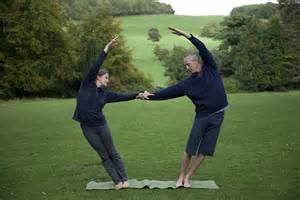
It happened again. I was in a second session with a young couple who have been struggling with uncomfortable and dissatisfying sex together. They were confused by what was happening in their shared sexuality, as many couples are, and frustrated because they didn’t know how to fix it themselves. Then they told me that their last couple’s therapist had advised them that if they built enough intimacy and emotional closeness their sexual issues would “take care of themselves”. AHHHH!!! Let me explain why this makes my head explode.
First, you should know that many (most?) psychotherapists out there have very limited understanding of the amazing vastness of human sexuality. Also psychotherapists and the field of psychology have been victim and perpetrators of sexual discriminations and basic close-mindedness and puritanical values for years. This is horrible and I am striving to do my part to change this for the field. But the point is, it is not an uncommon stance in psychology to say attachment and intimacy = happy sexual compatibility. As a sex therapist who has helped many people navigate their own complicated sexual desire, I know this is simply not true. As a human being who has had my own journey with love and sex and human closeness, I know this is not true. So why are therapists still saying it?
To claim that intimacy automatically leads to sexual compatibility disregards several key aspects of sex – one, it presumes that everyone is generally turned on by anyone they form a close relationship to; an argument that I think can only be made in a blatantly heteronormative mainframe that disregards what we have learned and should understand about sexual orientation and the limits of our desire. We simply cannot force desire where there isn’t one and attempts to shift desire to an “appropriate” partner are often disastrous. Two, this argument conflates all variations of human closeness into romantic sexual partnership, something that may be entertaining on soap operas but is quite limiting in real life. I am close to many people, in many different ways, and I do not have sexual desire for many of them. In fact with many people I develop a closeness that negates any sexual feelings, when someone begins to feel like family or a sibling for example.
Third, saying that intimacy and emotional closeness leads to sexual satisfaction ignores the variations of desire and how important they can be to our happiness. Most therapists who encourage couples to ignore clear sexual incompatibilities expect their clients to eventually adhere to a basic vanilla sex life – great for some, but deeply dissatisfying for others. This model privileges loving, eye-gazing, comfortable sex over other forms of sexual expression and connection. Loving and trusting your partner doesn’t mean that you both are going to be into restraints or submission play. Loving and trusting your partner also doesn’t mean you can easily give those things up. And being able to deep conversations and feel intimate doesn’t necessarily mean you do a great job talking about the subtleties and emotional vulnerabilities of sex and what you want. Not to mention that the therapist in question may have their own squeamishness and resistances to talking about sexual details and would just like to lump it all into one vanilla blur.
The reason psychotherapists who equate intimacy with sex irritate me so much is that I can see how clients get shamed by this. They feel ashamed that their love is not enough to naturally give them satisfying sex. They feel ashamed because they have desires that their partner can’t fulfill and they are being told that is unimportant in the bigger picture of emotional closeness. They feel ashamed because they are made to doubt their own desires yet again. This is not fair. The bad news is not all people who love each other are going to be great sexual matches. There is still plenty to explore in how to be and stay in relationship within that reality, but you need a support person who will go into those intricacies with you. The good news is your desire for something different than someone else is not something you have to ignore. At least not with me.

There is a word in the Yaghan language of Tierra Del Fuego – mamihlapinatapei. While I have no clue how to pronounce it; I really like this word, which means a look exchanged between two people who both desire to initiate something but both are unwilling to offer themselves. This may sound like a depressing thing, but I think we could stand to get more comfortable with the idea of mamihlapinatapei.
We Americans are not so great at longing. We are conditioned to focus on getting. But over the course of human history there has been a lot of longing, and there will always continue to be unrequited, unsatisfied longing. We can see this as failure, as a problem unsolved. Or we can see it as a part of the human experience and proof that the world is full and abundant – so full and abundant that we cannot HAVE it all.
There is a long literary tradition focused on long suffering yearning and unexpressed desire. I admit I found much of this irritating, too many high neck Victorian dresses, too much pining and martyrdom, too much repression. And I certainly don’t want us to return to hidden sexual drives, hidden bodies, or social structures that enforce separation and make so much loving impossible. But as I have gotten older, I have realized that there is something to learn from expressions of yearning, especially the type of yearning mamihlapinatapei speaks of – when one part of our self wants one thing and another part feels in conflict with that.
How many damaging sexual choices might be avoided if we grew up with an awareness of this concept? What if we were taught to expect moments of desire that we will not choose to act on? What if we actually enjoyed the tension of longing for something? What if the wordless exchange in a glance between two people that contained possibility but not action was considered a valuable, even beautiful, experience?
I want people to have full shameless sexual expression and satisfying sexual efficacy. I want people to get what they want. But I also want people to be so turned on by life and the world around them that they will experience some overflow, some sense of just taking it in without taking action. And I would like us to see that as potent, capable of building us up and filling us with energy of potential and private wonderings, rather than as a sign that life is passing us by. Life is here for you, with more than you can experience in one lifetime. And that is okay. Sometimes a passing look is creates a powerful memory of another version of passion manifest simply inside of you.

There is a word in the Yaghan language of Tierra Del Fuego – mamihlapinatapei. While I have no clue how to pronounce it; I really like this word, which means a look exchanged between two people who both desire to initiate something but both are unwilling to offer themselves. This may sound like a depressing thing, but I think we could stand to get more comfortable with the idea of mamihlapinatapei.
We Americans are not so great at longing. We are conditioned to focus on getting. But over the course of human history there has been a lot of longing, and there will always continue to be unrequited, unsatisfied longing. We can see this as failure, as a problem unsolved. Or we can see it as a part of the human experience and proof that the world is full and abundant – so full and abundant that we cannot HAVE it all.
There is a long literary tradition focused on long suffering yearning and unexpressed desire. I admit I found much of this irritating, too many high neck Victorian dresses, too much pining and martyrdom, too much repression. And I certainly don’t want us to return to hidden sexual drives, hidden bodies, or social structures that enforce separation and make so much loving impossible. But as I have gotten older, I have realized that there is something to learn from expressions of yearning, especially the type of yearning mamihlapinatapei speaks of – when one part of our self wants one thing and another part feels in conflict with that.
How many damaging sexual choices might be avoided if we grew up with an awareness of this concept? What if we were taught to expect moments of desire that we will not choose to act on? What if we actually enjoyed the tension of longing for something? What if the wordless exchange in a glance between two people that contained possibility but not action was considered a valuable, even beautiful, experience?
I want people to have full shameless sexual expression and satisfying sexual efficacy. I want people to get what they want. But I also want people to be so turned on by life and the world around them that they will experience some overflow, some sense of just taking it in without taking action. And I would like us to see that as potent, capable of building us up and filling us with energy of potential and private wonderings, rather than as a sign that life is passing us by. Life is here for you, with more than you can experience in one lifetime. And that is okay. Sometimes a passing look is creates a powerful memory of another version of passion manifest simply inside of you.

Be honest, are you feeling like each sexual experience is a repeat of the last? Do you know exactly where your partner will touch you next and for how long? If you feel like you can sleepwalk your way through sex, you are missing out on a lot. Just because you and your partner are familiar with each other doesn’t mean each experience needs to be the same as the last. But, like Bill Murray’s character in the movie, you may have to let go of some old habits and really get invested in what is happening.
What’s it going to take the break the pattern? Are you ready to wake up to a brand new day with new sexual potential? I hate to break it to you, but it is going to take some discomfort. Or as I warn my therapy clients, things are going to get awkward. Why should it be awkward? Isn’t that a bad thing?! you ask. Actually, no it is not a bad thing.
Trying new things often feels a bit uncomfortable. The reason we fall into habits is because that routine becomes the easiest thing to do; we don’t even have to think about it. It can be efficient and even effective to half sleepwalk our way through some tasks. But sex is not like that. Like pizza, a mediocre serving of sex can still be pretty good, it true. But if that is what you are having all the time, boredom will set in.
What risks will you take to break the pattern? I don’t know. But I am sure they will make you feel more alive. Like Phil in Groundhog’s Day, everything you try will not necessarily bring you closer to what you want. But it will make your day more interesting. And like Phil, you will need to try harder, to show up more genuinely, to get curious about the people you are with, and maybe to plan ahead. Get excited again. Wonder what might happen if you did this. It’s possible. It’s just also vulnerable. But you can do it. Wake up, it’s a new day.
Rita: This day was perfect. You couldn't have planned a day like this.
Phil: Well, you can. It just takes an awful lot of work.

Excerpted from The Conscious Sexual Self Workbook:
I want you to fuck me. I want you to inspire me. I want you to tease me. I want you to notice me. I want you to love me. I want you to be with me even if you shouldn’t. I want you to punish me. I want you to be a reflection of me. I want you to initiate me. I want you to plunder me. I want you to slowly unwrap me. I want you to let me. I want you to deny yourself for me. I want you to scare me. I want you to nourish me. I want you to treat me like a child. I want you to dissolve into me. I want you to impregnate me. I want you to reduce me to instinct. I want you to cry out for me. I want you to dream of me. I want you to taste every part of me. I want you to be naughty with me. I want you to do something you have never done before with me. I want you…
The depth of what we want from our sexual relationships is wondrous. We open ourselves to our own hungers in relation to other people, other people who could give us something we are, in their presence, discovering that we want. Oh, and that wanting is intense. Sometimes we hardly know how to contain it. Partners become muses for us. And what we get back from our sexual interactions is often more and different from we initially thought we wanted.
Our relationships incite growth in us. It is true they open new worlds to us and require us to get creative in very good ways. Keeping a relationship alive and growing is a practice that asks us to stay dedicated and keep working at it. Periods of inertia often are leading us to periods of significant transformation. Relationships help us discover our limits and sometimes to stretch them. They break our hearts and heal us, sometimes, vexingly, at the same time. The person you are now was developed in part in relationships with other people, and I invite you to be fascinated by this.
As distracting as your partners may be, it is worthwhile to stay interested in who you are while you are with them. In the hustle to find or keep a partner, have you asked yourself what kind of partner you are? It is disturbingly easy to give responsibility away to a partner. But you are shaping your relationships as much as anyone else. And you are shaping yourself. What kind of sexual moments are you inviting? What levels of satisfaction are you willing to reach for? How much intimacy do you want?
Do you want more? Buy The Conscious Sexual Self Workbookavailable now on Amazon.

In Buddhism there is a concept called the realm of the hungry ghosts. In this space as ghosts with tiny mouths and throats but enormous bellies. They are always hungry and can never be satiated. They are bound to their desire, constantly seeking more, trying to be full. These ghosts provide insight in to the pain of unsatisfied desire. Many of us have experienced the torment of feeling unsatisfied, longing, desperate to meet a need that remained unfulfilled. Sexuality may have caused us to feel like these ghosts trying to feed but never nourished.
So how can we avoid this frustrating existence? In this metaphor we need to expand our mouths and possible shrink our bellies, take in more while being full on less. I believe we can do this by being mindful and increasing our awareness of sensation and feelings. We take in more by experiencing everything more vividly, reducing distraction and focusing on really feeling what is happening. We increase pleasure by slowing down enough to taste it before rushing on to the next bite. We don’t think of an empty belly waiting to be filled, but think of each rush of flavor as it enters our mouth. Each touch, each breath on our skin, each shudder is appreciated. And so the experience becomes more satisfying.
We shrink our bellies, not by denying ourselves but, by being careful of what we label as “enough”. We are introduced to increasingly impossible and frankly, outlandish ideas of what we are supposed to be satisfied with, leading us to stay chasing an elusive finish line. Stay wary of temptations to always need more. The possibility of more is exciting, it is a gift, but if it becomes a distraction that takes you away from what you currently have to enjoy, be aware of that.
We live in a society that encourages constant dissatisfaction. This makes us good consumers as we desire the relief of the next thing to make us happy. We are trained to be hungry ghosts distracted by unrelenting stimulation, trying to ingest it all, but getting little nourishment from it. Our sexuality is affected by distractions too, of all kinds. It takes focus to really take in a sexual experience without minimizing it by rushing or performing or over-thinking.
Sometimes the most simple things are what satisfy – a fresh strawberry, a quiet moment to hear the breeze in the tree, a singular awareness of the softness of a tongue on your body. Feed yourself by paying attention to what you are taking in. Let yourself enjoy freely, without wondering is there supposed to be more? Change from ghost to flesh and blood.

The FDA is holding open meetings in October to obtain patient and doctor input on female sexual dysfunctions, specifically low desire. Now since it is the FDA, they are hoping to gain momentum on developing a medication that can treat lack of sexual desire. Which makes those of us who work with people struggling with sexual concerns sigh with frustration, “As though it is that simple.”
Sexual desire is complex. So much so that we can also say it is mysterious. Why we crave what we crave, why we crave it sometimes and not other times, why we are drawn to certain people, all questions without clear answers. And why we can’t just convince ourselves to want sex when it the person, place or time are convenient? That is a question that many people ask themselves. Low sexual desire is only a clinical issue when someone wants to want sex. But wanting to be sexual is not the same thing as desiring sex in that moment. And so many people are seeking their sexual desire spark to reignite.
There are physical issues that come into play with low desire, certainly. Hormones, brain chemistry, stress levels, exhaustion, side effects from drugs, general health and more should be considered. But so should emotional stressors, lifestyle, religious or spiritual conflicts, body awareness and acceptance, beliefs about sex and pleasure, traumas and fears, self image, lack of sex education, ability to enjoy sexual stimulation, and on and on. And I haven’t even started listing all the ways the relationship the person is in may affect their level of sexual desire. An issue that starts from one stimulus, say back pain, can lead to a pattern of saying no to sex, which leads to distance and resentment in a partner, which leads to less desire to be with them, which leads to less positive thoughts about sex…You can see how things interplay.
Even if the FDA can create a pill that motivates sexual desire would we want to take it? There is a creepy factor in feeling as though your sexual desire is manufactured. What invites us to ask ourselves, what is “real” desire. Desire is not just physical, nor just emotional, or relational. Our sexuality is interlaced with all aspects of our lives; that is one reason it is so potent. Sexual happiness can heal us on many levels and sexual unhappiness can trouble us on many levels. Desire draws on multiple aspects of Self, and my sense is that many of us want it that way.
There is a group specifically challenging the medicalization of sex, called the New View Campaign. Let’s keep our approach to sexual health diverse and multi-dimensional.

Sex with another person can be a gift both given and received. It can nourish us and refill us in multiple ways. At its best partnered sex can be a dance of give and take, pleasure experienced and shared, so that the giving and receiving becomes blurred. Sometimes we stop noting the many ways we give and receive when we are sexual together. As we near the fall solstice when our days and nights are balanced, it is an appropriate time to ask ourselves – how am I doing with balancing giving and receiving for myself?
There is a graciousness in giving that many of us have been taught; we show love by giving. But we can also show love by receiving and there is a graciousness in receiving that may feel less familiar. How do you open yourself to receiving from another person freely? Each of us has our own relationships with these states, and our own limits. Sex is a great window for seeing into our abilities to give and receive and the ways we stop ourselves from doing so.
Everyone of us has probably had times when we gave but were actually being more controlling than generous. And times when we appeared to be receiving but didn’t feel nourished or open at all. In sex we can perform either of these states without taking in the benefits of them. Some of us have guilt about laying back and being pleasured. We may have been told it is degrading to focus on pleasuring your partner without getting something for yourself. We have shared myths about gender and how men are supposed to perform or how women are supposed to perform that get in the way of letting ourselves freely take in or give back. You get to do both, sometimes at the same time.
And that’s the thing, only you will know what giving or receiving looks like or feels like for you. One person may be strictly dominant, only enjoying the active role, not desiring their partner to touch them at all. And that person may still be very much receiving, while also giving to their partner. She may receive empowerment, vicarious joy, her partner’s trust, love, intense sexual excitement and satisfaction…and more. The acts of giving and receiving are not about what sexual behaviors you are participating in or whose mouth is on whom. It is an awareness of the gifts of both states. So check in with yourself. Are you allowing yourself to give in ways that feel good and satisfying to you? Are you allowing yourself to receive in ways that refresh and fulfill you?
 The Thinker
The Thinker
On a long drive I was listening to a public radio conversation amongst scientists about the possibility of creating truly intelligent computer “minds” and whether or not a computer could develop feelings. This was inspired by the recent movies Her and Transcendence, both featuring computers who develop or upload personalities that can interact with humans. This brings up interesting questions about what is consciousness and what we need to feel connection with another. But what surprised me was the complete absence of any mention of the body itself and its role in our emotions.
I am not a neuroscientist; I am a psychotherapist. From all that I know and have witnessed in human’s emotional lives, I do not believe we could ever create a computer personality that can have feelings. Why do I say this? Because feelings involve physical sensation. Hence FEEL-ings. We are so attuned to our fleeting physical shifts throughout our day that many of us don’t even consciously register them anymore. But what we know from scientists who look at our emotional responses, the experience and expression of emotion uses several parts of our nervous system all working incredibly quickly and sometimes, seamlessly. But if we could slow the emotion creation down, what we most often would find is that 1) first there is an external cue that we register to in a split second, so quickly that we are sometimes unaware of the cue itself (I fumble my change while getting my morning coffee) 2) we have a non-voluntary physiological reaction; our body responds in a way that we can feel (the muscles in my arms and hands tense, I get a burst of focus, my stomach contracts, I blush) 3) our neocortex is mobilized to make sense of the body response, this is when an emotion is assigned to the feeling within our mind (those sensations feel to me like embarrassment) 4) then our neocortex references social norms and meanings of this emotion and enables us to decide how to behave (I notice that the barista didn’t seem to care, this has happened before, no big deal, I can let it go) . All of this happens within seconds. But the feeling of emotion begins when our body responds.
Now as a therapist, I am also aware that what we think affects how we feel. What we focus on shapes our perceptions of the world and our responses to it. We can indeed think ourselves into a bad mood; we have all done it. But in that case the thought is the original cue, an internal one rather than an external one. The feeling state will still be based on a physical response, and our subsequent interpretation of it. Our body is the source of our emotional life. It is integral to our unique responses, our desires, our sense of connection to others. I believe our body allows us to feel the way we feel about people or situations through a complex flow of sensations and chemistry. Without a complete nervous system and the ability to experience sensation, I believe a computer mind could generate preferences, maybe even a pattern of enjoyment. But not love, not sadness, not anger, not longing or lust. For those I believe we need a body. Are you listening to yours?
Blondes, Brunettes, Gingers. Bears, Twinks, Dykes, Femmes. Clean Cut, Thick, Skinny, BBW, MILFs, GILFs, Androgynous. Many of us find ourselves drawn sexually to a particular look in partners. Luckily human tastes vary greatly so truly everyone will have a few admirers. But still, the concept of a type can make people uncomfortable. Is it ok to have a type? What does desire consist of? When does a type become a fetish? What about love, can it overcome a type, should it?
It’s probably pretty uncommon for someone to really not have a type at all. If asked to imagine a fantasy partner most people will have some set of attributes that frequently come to mind. But many of us have also found ourselves attracted to someone that at first glance we might not have thought would draw us in and our desire patterns shifted to include this person, maybe the way they move, or smell, or the way we feel when we are with them. There are so many components to desire; it is rare that it can be defined clearly.
And how we become attracted to the people or characteristics we are attracted to is largely a mystery. There are elements that are innate to us, elements that may be based on early memories, partners who imprinted us with positive or negative feelings, tendencies to be attracted to difference or to the familiar, all kinds of factors. It may be important to ask ourselves about our types to clarify if they are based on stereotypes about character –which may largely turn out to not be true about individuals. If you are drawn to bad boys because you think they will show you a secret soft side or asian women because in your fantasies they are submissive, you are probably in for some frustration and some angry partners. The fantasies themselves are not a problem, so long as you are aware that real people in the real world may not play these fantasies out just the way you imagined it.
And what if you have a distinctive feature that some people are searching out sexually? Does that change the nature of how you think of their bond with you? For example, if you are visibly disabled, there are people who specifically are looking for disabled partners. Does this feel ok to you? How do you assess if someone is fetishing an element of your look or body? Would you feel differently if the person is looking specifically for someone with large breasts? Why or why not? I believe some of our concern about distinctive types that people may be drawn to is based in discrimination against variations to the “normal” sexual model. If a big beautiful woman wonders how anyone can be attracted to her because she believes she is not the right kind of sexy, then she will question partners who openly seek out women with large bodies.
But even if we have come to peace with our own characteristics that people see initially, not many people want to feel that their partner picked them strictly for a physical characteristic, especially for one they have no control over. And some of these attributes we may age out of or may change over the course of our life. So people looking for long-term partnerships may be worried that sexual desire will disappear with changes in the way they look. We want people to be strongly attracted to us sexually, to love our attributes, but we also want to be seen as unique. Some flexibility in our attraction patterns will probably serve us well. Fine tuning our ability to recognize our own signs of physical desire is important too and may allow us to be surprised about who or what turns us on. So many beautiful people out there, keep your eyes and mind open.